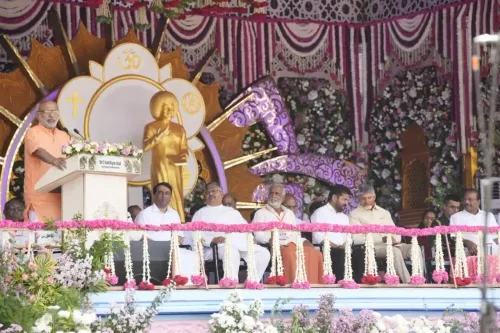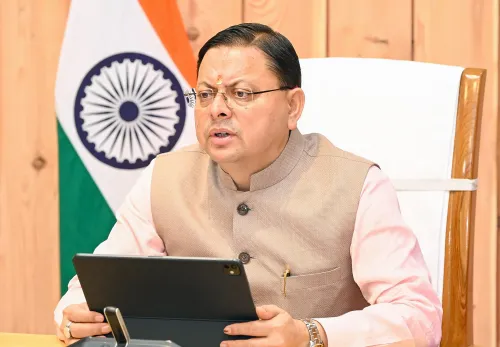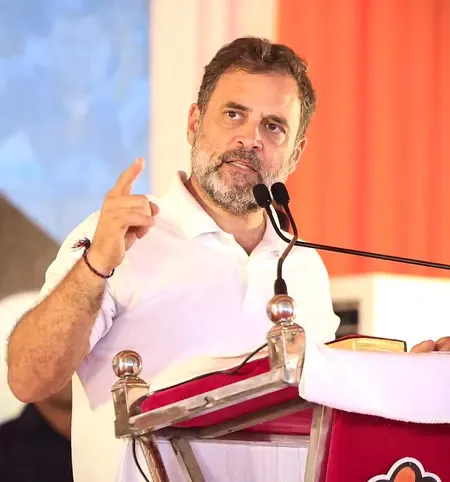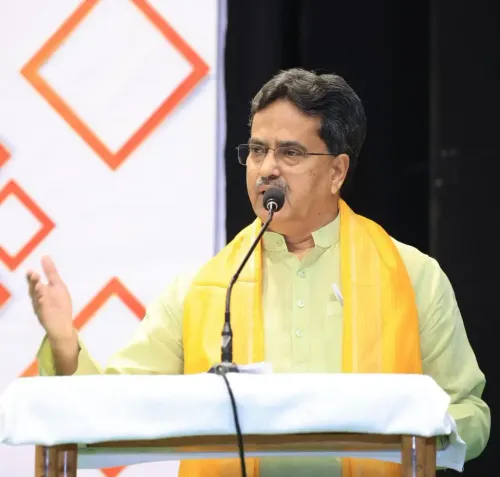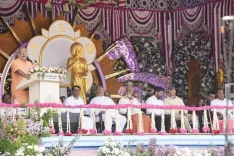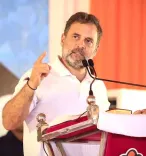Did ECI Challenge Rahul Gandhi's Vote Theft Claims?
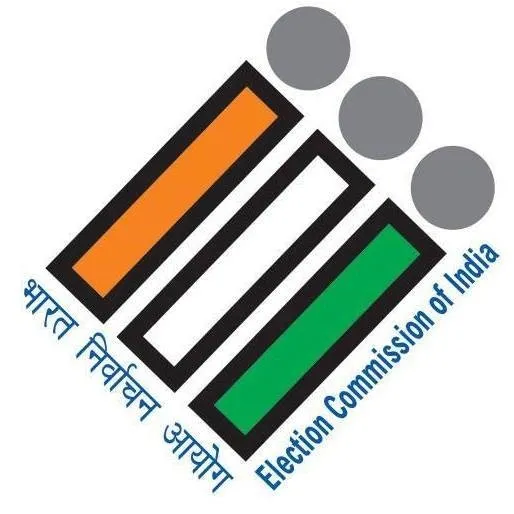
Synopsis
Key Takeaways
- ECI challenges Rahul Gandhi's claims.
- Formal complaint demanded from Gandhi.
- Discrepancies in voting data highlighted.
- Routine electoral roll revisions defended.
- Political implications for 2024 elections.
New Delhi, Aug 7 (NationPress) The Election Commission of India (ECI) has firmly countered Congress leader Rahul Gandhi's claims of “vote theft” in Karnataka, urging him to file a complaint under oath or cease disseminating misinformation to the public.
In a detailed “Fact Check” regarding the assertions made by the Leader of Opposition in Lok Sabha, the ECI also provided a template for an oath declaration that Gandhi may use to formally address his concerns about the 2024 Lok Sabha election voter list for the Mahadevapura Assembly segment in Karnataka.
Stating that Gandhi's remarks are misleading, the ECI remarked: “If Rahul Gandhi is confident in the veracity of his statements, he should sign the Declaration/Oath as per Rule 20 (3)(b) of the Registration of Electors Rules 1960 and submit it to the Election Commission Officer of Karnataka by this evening to initiate necessary actions.”
The ECI further advised the Leader of Opposition to avoid reaching “absurd conclusions.”
“If Rahul Gandhi doubts the authenticity of his allegations, he should refrain from making illogical conclusions and misleading the citizens of India,” the ECI added.
Earlier, Gandhi had accused the electoral process in the Mahadevapura Assembly segment of Karnataka’s Bangalore Central constituency of significant fraud during the upcoming 2024 Lok Sabha elections, asserting that similar irregularities were taking place nationwide.
He claimed that his allegations were substantiated by data collected over six months by a team comprising over 30-40 individuals and accused the ECI of working in collusion with the BJP to distort the voter list, hinder scrutiny, and facilitate widespread voter theft.
According to Rahul Gandhi, the Congress garnered 6,26,208 votes in Bangalore Central, while the BJP received 6,58,915 votes, resulting in a margin of 32,707.
However, a closer inspection of the Mahadevapura Assembly segment, part of this Lok Sabha seat, showcased a considerable discrepancy. The BJP secured 2,29,632 votes while the Congress only managed 1,15,586, creating a shocking gap of 1,14,046 votes.
Gandhi alleged that at least 1,00,250 votes were unlawfully appropriated in this single Assembly segment, with similar occurrences being reported across the country.
“First, duplicate voters. A total of 11,965 entries were identified as duplicated across various booths and even states. Names like Gurkirat Singh and Aditya Shrivastava appeared repeatedly, with Shrivastava's name surfacing in multiple states—Karnataka, Maharashtra, and Uttar Pradesh,” remarked Rahul Gandhi.
Gandhi's allegations against the ECI prompted criticism from Union Parliamentary Affairs Minister Kiren Rijiju, who accused him and his party of undermining constitutional bodies like the ECI and the Supreme Court whenever outcomes do not align with their interests.
During a press conference in the national capital, Rijiju labeled the Congress party’s criticisms of the election commission regarding the alleged manipulation of voter lists as “bogus” and politically motivated.
“The claims made by Rahul Gandhi and his associates are unfounded. They are targeting the Election Commission to damage its reputation,” Kiren Rijiju asserted.
He emphasized that the Special Intensive Revision (SIR) of electoral rolls is a routine procedure, not a politically motivated initiative.
“SIR has been conducted several times, even since our independence. In Maharashtra, when the Congress and its allies won the majority of Lok Sabha seats, they praised the same electoral rolls. Yet, after losing in the Assembly elections, those same rolls became a point of contention,” Rijiju concluded.

